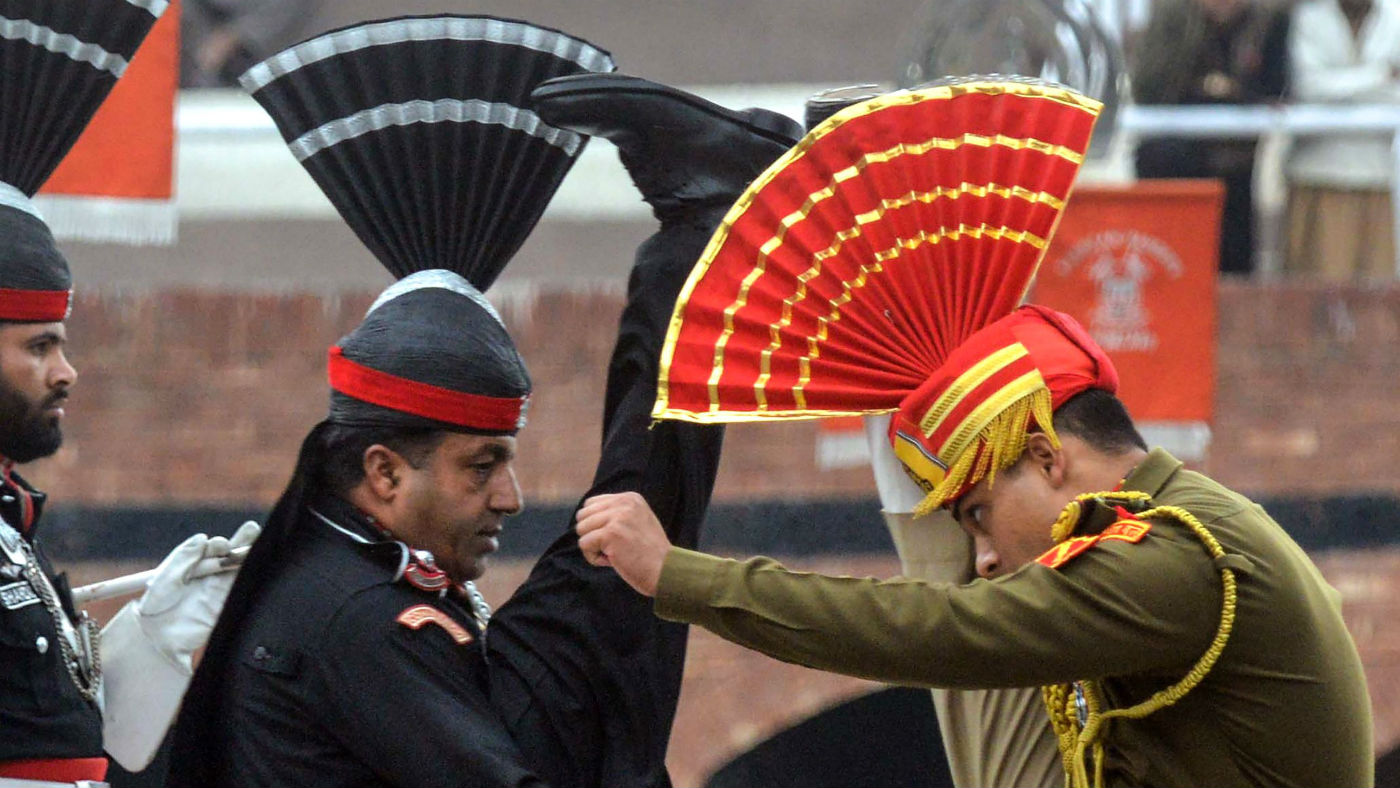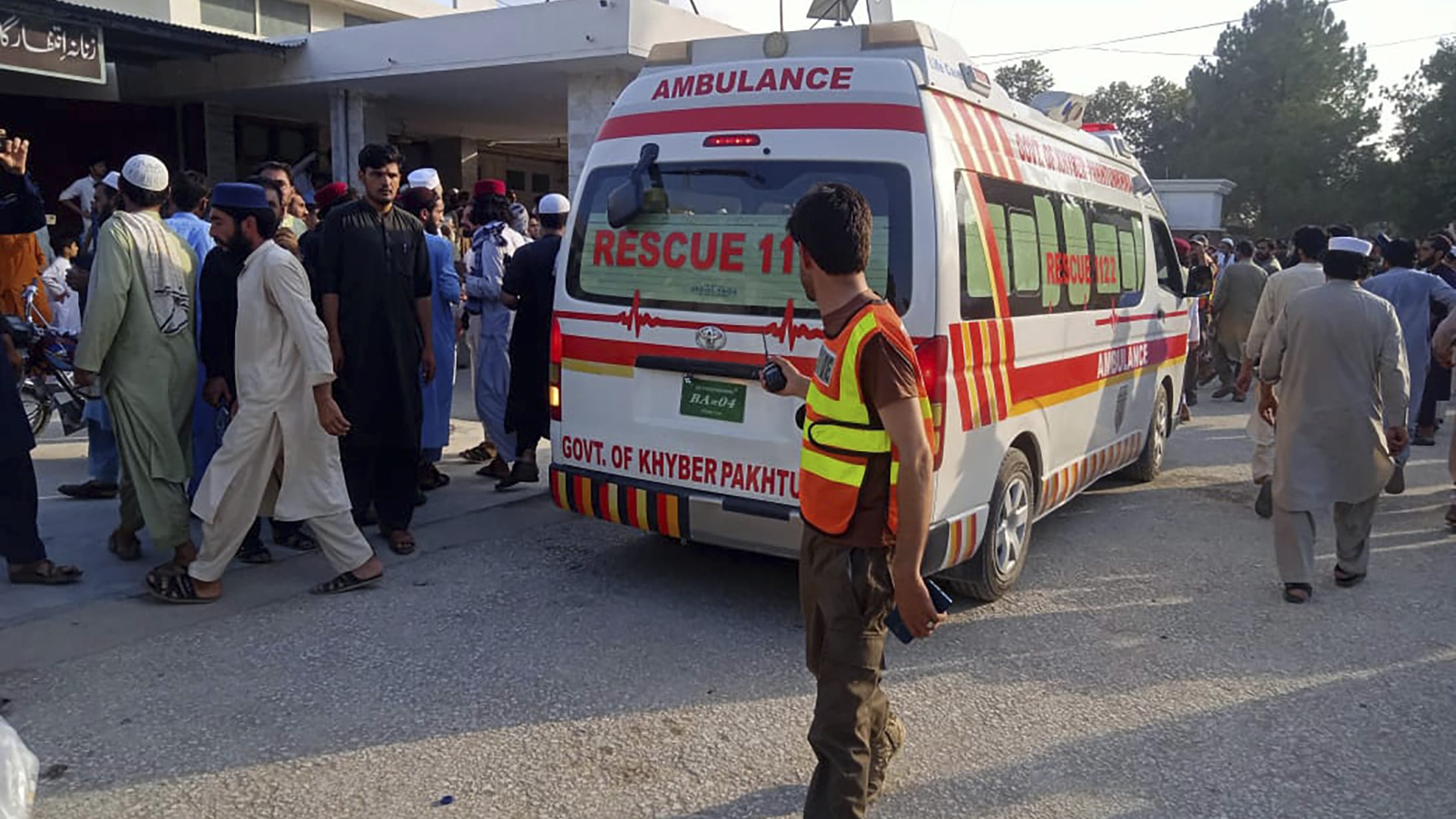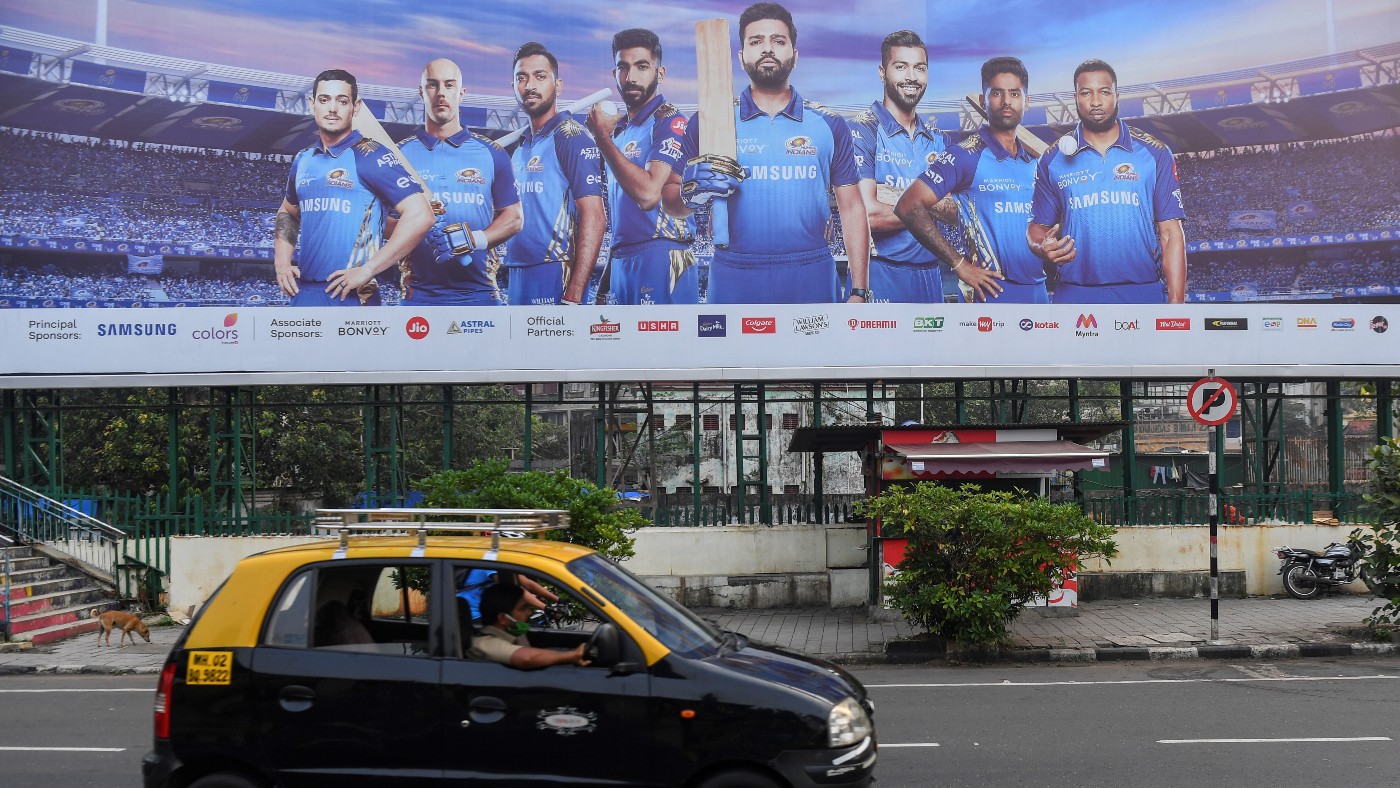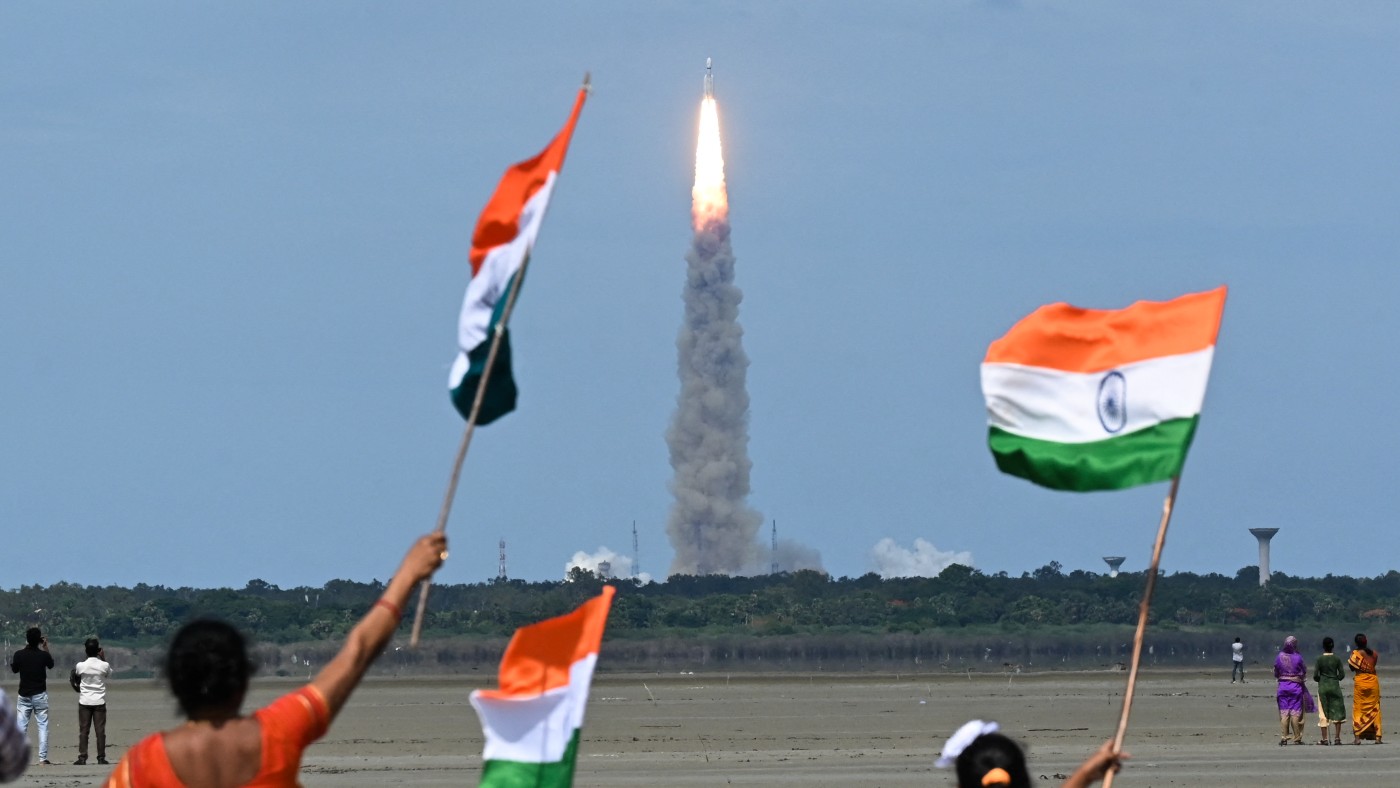Will India and Pakistan go to war?
Recent skirmishes are ‘steep escalations in the most serious military crisis in south Asia since 1999’

A free daily email with the biggest news stories of the day – and the best features from TheWeek.com
You are now subscribed
Your newsletter sign-up was successful
Pakistan and India have each claimed attacks on the other’s fighter jets as tensions reach a peak in the two nuclear powers’ dispute over Kashmir.
A Pakistan army spokesperson said the country's air force shot down two Indian jets after they crossed the Line of Control dividing Indian and Pakistani territory in the border region.
Major General Asif Ghafoor said one plane went down in Indian-controlled Kashmir, while the other crashed in Pakistan’s territory, where troops arrested the pilots.
The Week
Escape your echo chamber. Get the facts behind the news, plus analysis from multiple perspectives.

Sign up for The Week's Free Newsletters
From our morning news briefing to a weekly Good News Newsletter, get the best of The Week delivered directly to your inbox.
From our morning news briefing to a weekly Good News Newsletter, get the best of The Week delivered directly to your inbox.
Pakistan’s Prime Minister Imran Khan confirmed the attack and said the “pilots are with Pakistan”.
Meanwhile, India that its own forces had shot down a Pakistani jet over the heavily militarised border.
The skirmishes - just a day after India flew sorties into Pakistan for the first time in nearly 50 years - “are steep escalations in the most serious military crisis in south Asia since the pair fought a brief war in the Himalayas in 1999”, says The Guardian.
The dogfights are the first publicly acknowledged such clashes between the two countries since they were last officially at war, in 1971. Commercial flights across Pakistan and north India have been cancelled as a result.
A free daily email with the biggest news stories of the day – and the best features from TheWeek.com
Khan has called for talks with India and said he hoped that “better sense” would prevail to de-escalate the dispute.
“History tells us that wars are full of miscalculation. My question is that given the weapons we have, can we afford miscalculation. We should sit down and talk,” he said during a short televised address to his nation.
Indian Prime Minister Narendra Modi “has not yet made any comment”, reports the BBC, but his foreign minister, Sushma Swaraj, said her country would act “with responsibility and restraint”.
"India does not wish to see further escalation of the situation," she said.
Tensions have been high since Pakistan-based militant group Jaish-e-Mohammad claimed responsibility for a suicide bombing in Indian-administered Kashmir last Thursday that claimed the lives of more than 40 members of India's security forces. It was the deadliest militant attack in the disputed region in decades.
India has said there was “incontrovertible evidence” that Pakistan had a “direct hand” in the attack, a claim which drew a stinging rebuke from Khan.
Pakistan’s foreign minister, Shah Mahmood Qureshi, subsequently appealed to the UN secretary general to help ease tensions with India that, as Reuters reports, have “escalated sharply”.
Both India and Pakistan “are believed to possess more than 100 nuclear warheads each and have conducted atomic weapon tests”, says The Independent.
And Pakistan “has refused to renounce a first-strike option with its atomic bombs should it feel outgunned in a conventional war”, the newspaper adds.
According to The Washington Post, the Bulletin of Atomic Scientists organisation warns that “computer models have predicted that the physical impacts of a nuclear exchange between India and Pakistan, or even a single strike on a large city, would be devastating and would reverberate throughout the world”.
Separatist violence in Kashmir has killed at least 47,000 people since 1989, although “some human rights groups and nongovernmental organisations put the death toll at twice that amount”, reports CNN.
-
 How the FCC’s ‘equal time’ rule works
How the FCC’s ‘equal time’ rule worksIn the Spotlight The law is at the heart of the Colbert-CBS conflict
-
 What is the endgame in the DHS shutdown?
What is the endgame in the DHS shutdown?Today’s Big Question Democrats want to rein in ICE’s immigration crackdown
-
 ‘Poor time management isn’t just an inconvenience’
‘Poor time management isn’t just an inconvenience’Instant Opinion Opinion, comment and editorials of the day
-
 Pope aide under fire for 'mystical orgasms' book
Pope aide under fire for 'mystical orgasms' bookTall Tales And other stories from the stranger side of life
-
 Thieves who stole shopping bag in for big disappointment
Thieves who stole shopping bag in for big disappointmentTall Tales And other stories from the stranger side of life
-
 Woman has one in 50 million pregnancy
Woman has one in 50 million pregnancyTall Tales And other stories from the stranger side of life
-
 Children trapped 900ft in the air in Pakistani cable car emergency
Children trapped 900ft in the air in Pakistani cable car emergencySpeed Read A helicopter rescue effort has been launched to save the stranded group of eight
-
 The spiralling global rice crisis
The spiralling global rice crisisfeature India’s decision to ban exports is starting to have a domino effect around the world
-
 Blast at political rally in Pakistan kills 43, wounds 200
Blast at political rally in Pakistan kills 43, wounds 200Speed Read
-
 The sinister side to India’s fantasy gaming craze
The sinister side to India’s fantasy gaming crazefeature Fantasy gaming is booming in India, despite the country's ban on gambling
-
 India hoping to be fourth country to reach Moon after Chandrayaan-3 launch
India hoping to be fourth country to reach Moon after Chandrayaan-3 launchSpeed Read Rocket aiming to set its lander Vikram down near Moon’s little-explored south pole